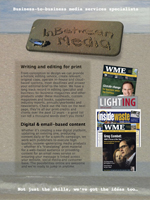Given social media is moving much faster than the law, how do publishers work with existing laws that were devised without new technologies in mind?
Peter Karcher, from commercial law firm, ClarkeKann, explored this topic in a briefing held last year as part of the Publishers Australia Legal Seminar Series.
“What you’re actually finding in terms of new laws, there’s a bit of a move to open-ended laws, that is laws that are technology neutral and you see that in the copyright sphere,” said Karcher.
What is it about social media that throws up particular challenges?
According to Karcher it’s the speed at which it evolves and immediacy of the media.
“There are no filters, there are no ‘checks and balances’, or very few,” he said. “There are constant examples of people tweeting something… then apologising the next day”.
There’s also the potential for material to be re-published and shared via social media platforms.
“You reach a wider audience so much more quickly and, from a legal perspective, if something has a liability issue, the potential for damage is that much greater,” said Karcher.
Additionally, “everybody is now a publisher in the eyes of the law”, and many don’t realise that in creating tweets or blogs they are bringing themselves within the scope of the law as applied to publishers.
“There’s still this misconception that what you say on social media is somehow private,” said Karcher, “It’s not like a throwaway comment at a barbeque”.
He made the point that there is often no clear line between what is personal, as related to a personal social media account, and what is work related.
There have been instances in recent years where journalists have been fired as a consequence of comments they have made on social media platforms.
Karcher believes there are two reasons why this issue is more complicated for journalists as opposed to employees in other fields: firstly, social media useage is a legitimate part of their job, and secondly, because media companies rely to varying degrees on maintaining their reputation for independence and lack of bias.
Karcher encourages the use of social media policies which are educational in nature but which also include some legal mechanics that allow them to be enforceable. However, such policies in a media context can be contentious as they “throw up some conflicting issues in terms of free speech”. Although Karcher added that such a defence does not always exists and in many cases employers in Australia can legitimately regulate what employees do on social media.
The existence of a comprehensive policy is critical when attempting to discipline or terminate the employment of an employee who has abused a social media platform to the detriment of the employer. In the absence of a policy and explicit training on the terms of that policy, the employer is at risk of a finding of unfair or unlawful dismissal.
A social media policy for employees should be general enough to cover the evolving nature of the technology. It is important to frame the policy in terms of concepts rather than particular types of behaviour.
“Think about procedures before materials are posted, what are the checks and balances?” said Karcher, in relation to business-related social media accounts.
Publishers may be held liable under a range of laws, including defamation, misleading and deceptive conduct, and advertising standards, for third-party content posted to a site they control, including corporate Facebook pages.
An organisation’s risk profile also increases once it is put on notice of potentially infringing material. This doesn’t mean the material should automatically be taken down, according to Karcher, but requires organisations to respond quickly and carefully.
Considerations for drafting a social media policy, especially for journalists, include:
. be positive and encouraging about social media, but aim to educate journalists about the importance of your brand, and how their actions on social media can impact the brand;
. differentiate between personal and “official” accounts;
. set procedures for establishment and use of “official” accounts, including any editorial checks necessary;
. tell people what you expect of personal accounts, and any disclaimers or clarifications required;
. confidentiality; and
. legal aspects, including setting out a process and potential consequences, in the event of a breach.
For more information contact Peter Karcher: p.karcher@clarkekann.com.au or visit www.clarkekann.com.au



Comments are closed.